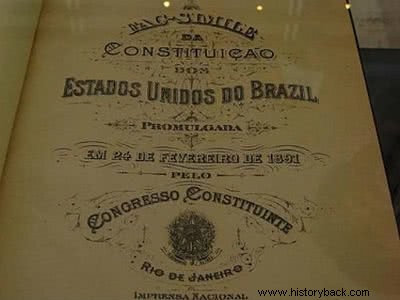The census vote or suffrage is the right to vote granted to a certain group of people who fulfill certain economic requirements.
Origin
The census vote emerged at the end of the Ancien Régime with the liberal revolts that took over the European and American continents. Inspired by Enlightenment and liberal ideas, the bourgeoisie began to demand more political participation through the election of its representatives.
However, the King and the nobility did not look favorably on the division of power. However, due to the need to incorporate new social actors into political decisions, the right to vote was granted to a small portion of the population.
Thus, the main characteristic of the census vote is to be directed to a class of owners who are elected and make laws to protect themselves. The census vote was adopted in the American Constitution of 1787 and the French Constitution of 1791.
It is important to emphasize that the Enlightenment and Liberalism were not democratic in the sense of guaranteeing rights for all citizens. Often, their ideas were aimed only at a privileged part of the population, leaving out women, children, peasants and urban workers.
Learn more about the Enlightenment.
Census Vote in Brazil
The Political Constitution of the Empire of Brazil, of 1824, guaranteed the right to vote by census to the male population.
Only free men, over 25 years old, with an annual income of more than 100 thousand réis could vote in the primary elections. In this election, those who would vote for deputies and senators were chosen.
Likewise, to be a candidate in the primary elections, the income would rise to 200 thousand reis and excluded the freedmen. Finally, candidates for deputies and senators had to have an income of more than 400 thousand reis, be Brazilians and Catholics.
Despite being much criticized nowadays, if we compare it with the other constitutions of the time, Brazil was aligned with the thinking of the western world at that time.
Read more about the Constitution of 1824.
For its part, the 1891 Constitution, the first in republican Brazil, abolished the census vote, but only allowed literate Brazilian men to vote. In this way, the republican Magna Carta also restricted the right to vote, since a large part of the population was illiterate and women.
In the First Republic, fraud and the local power of the colonels established a practice called Voto de Cabresto.

First page of the 1891 Constitution
Census Vote x Universal Vote
The Census vote is opposed to the Universal vote.
Universal suffrage is the right to vote for all citizens of a country without discrimination on grounds of gender, religion, income or education. The only restriction is to be of legal age according to the legislation of the country.
In 1932, the female vote was approved in Brazil, however, illiterates, soldiers and religious could not vote.
In Brazil, universal suffrage was guaranteed by the 1988 Constitution.
Learn more:
- Brazilian Constitutions
- What is Politics?
- Female Vote in Brazil
